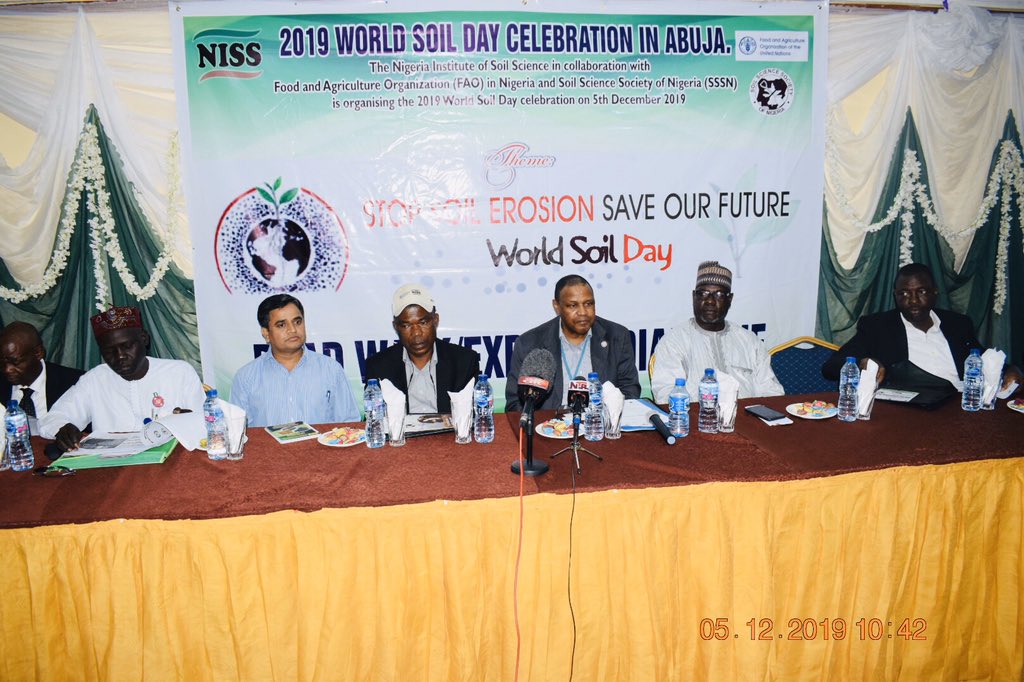
The Stakeholders
in the Agricultural sector have called for the enactment of national soil
policy that will give sufficient protection to soil maintenance and its
sustainability for food security in view of unabated increasing population
towards year 2050. This position was taken during the 2019 World
Soil Day celebration with the theme: “Stop Soil Erosion. Save our Future”.
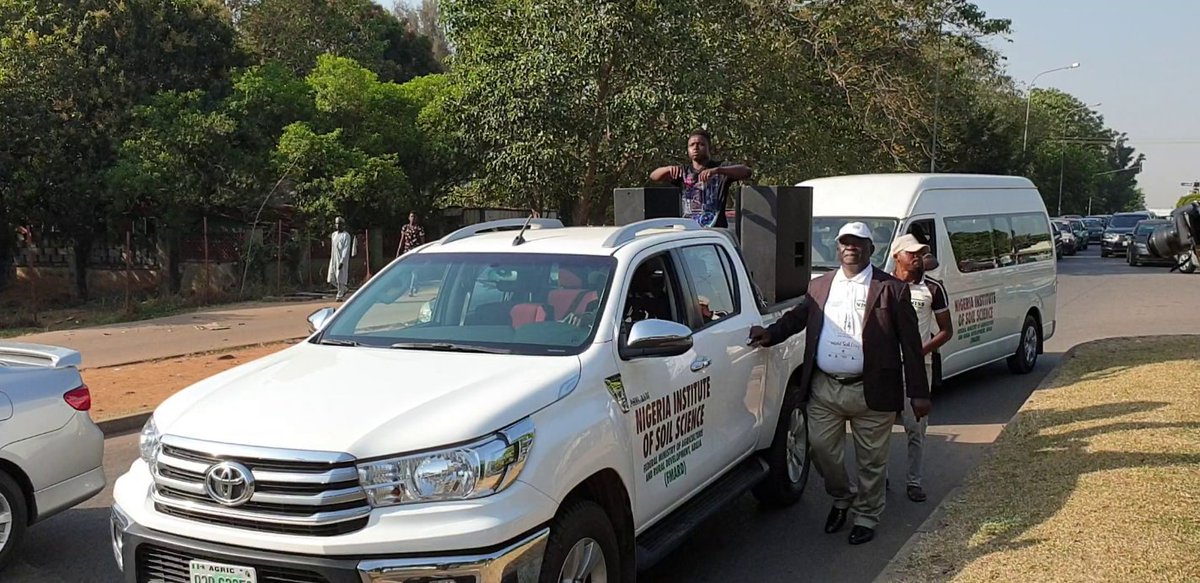 They said
that the national policy on soil would be able address the issue of people who
are fond of abusing the soil surface without considering the nutrients that are
lost in the process of their excavation activities as the population continue
to grow unabatedly in view of food security the years ahead.
They said
that the national policy on soil would be able address the issue of people who
are fond of abusing the soil surface without considering the nutrients that are
lost in the process of their excavation activities as the population continue
to grow unabatedly in view of food security the years ahead.
The
Registrar, Nigeria Institute of Soil Science (NISS), Professor Victor Chude,
lamented on how the activities of people who are involved in quarrying and excavation
of sand for building always have been promoting soil erosion cum loss of soil
nutrients, thereby summated that a policy to checkmate this be enacted by FG.
He pointed
that “If we don’t work hard enough to stop soil erosion, what would we leave
for posterity? The consequences are that
there will be nothing to support the coming generation, so we need to stop soil
erosion and save the future generation’’
Chude wants
soil experts to ensure that information on soil are constantly made available
to the Government saying “what soil scientist can do, is to support with soil
information, make it available to Government, information that relate with soil
fertility or how the soil can be properly managed to support the growth of trees”
Professor
Chude continued that “the first soil survey that was held in Nigeria
was in the 90s that led to the production of the soil map for the country after
which there had been no other attempt to update till date, as there are plans
to undertake detailed soil survey’’
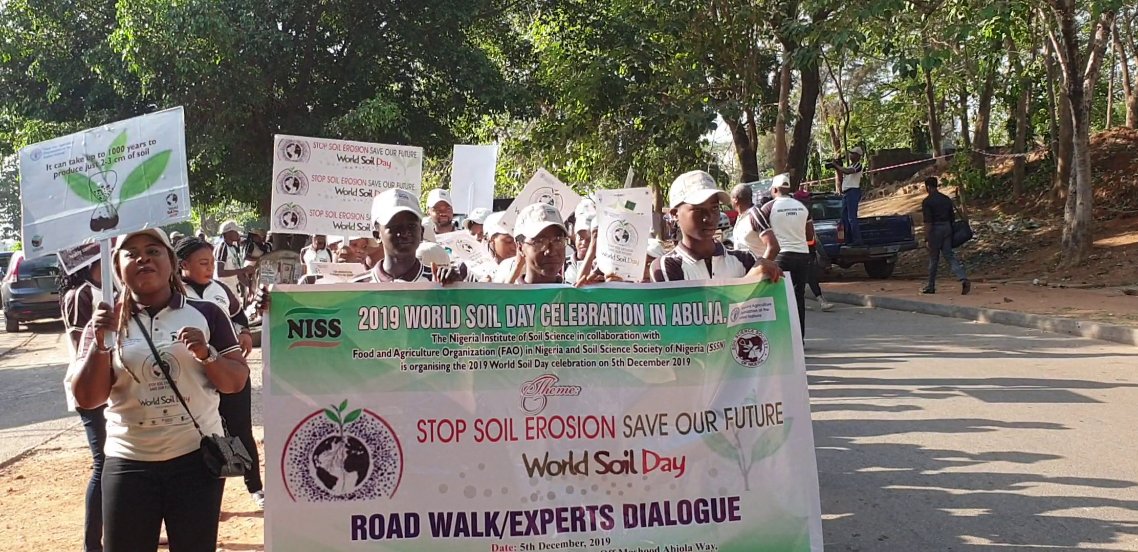
Also, the
Nigerian, Country Representative, Food and Agriculture Organization (FAO),
Suffyan Koroma in his remarks, called for the adoption of reliable and proven
soil conservation technologies to reduce erosion rates on farmlands.
Koroma said that “to achieve this requires a
thorough evaluation of the various strategies for soil fertility improvement
and soil conservation techniques in the country”
He added
that “Several studies have demonstrated that the soil removed by either water
or wind erosion is 1.3 to 5 times richer in organic matter than the soil left
behind. This is not good for our mission to achieving food security in Nigeria.
“Every five seconds, the
equivalent of a soccer pitch is eroded globally, affecting soil fertility as
well as global food security and safety. As the world population expands, the
need for enhanced awareness to tackle the concern is most desired” said Koroma.
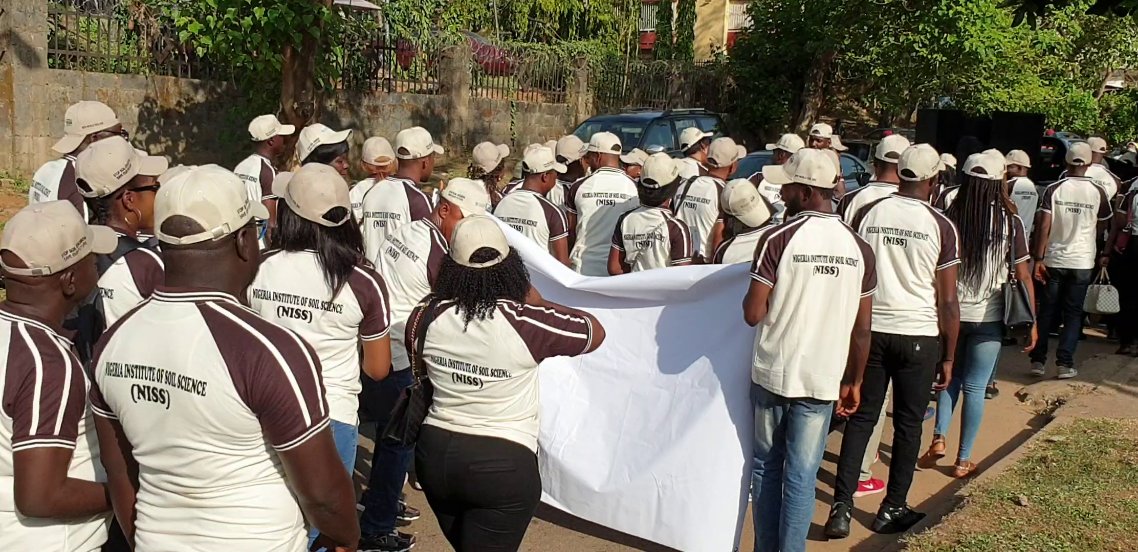
Dr Effiom
Oku, from the Department of Soil Science, University of Abuja, in his paper emphasised on putting in place
a national soil policy that would
address the issue of erosion that normally watch away substantial nutrient
substance from the soil surface as a serious threat to food security.
Oku said
that the policy will empower scientists to swing into action as enforcement
agencies would be able to go after the people carrying out activities that can
trigger soil erosion in the country. Read and post.
He explained that erosion vulnerability and rainfall aggressiveness
map has provided a veritable reason for policy tool that would be use as legal document
to protect our land and soil for ensuring food security.
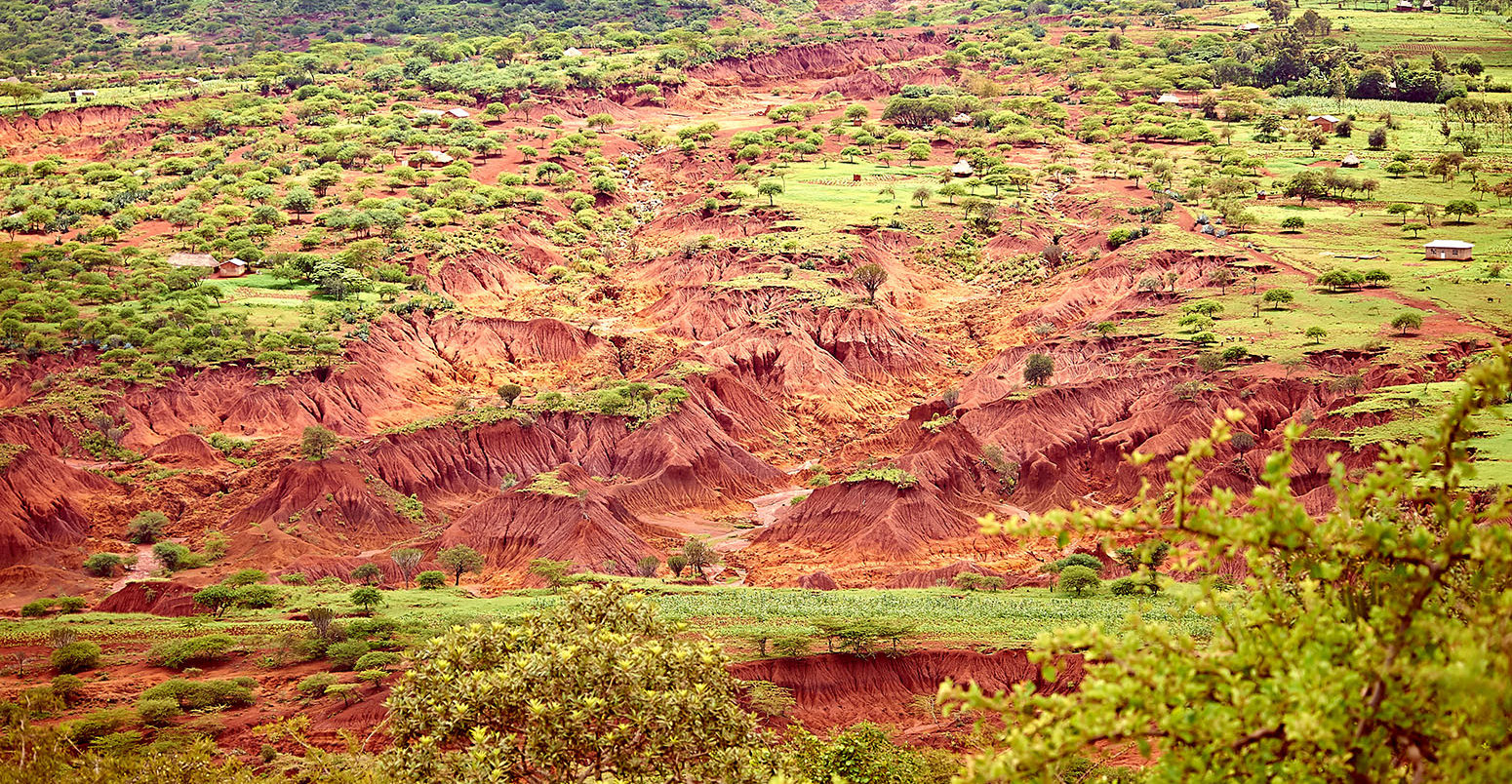










No comments:
Post a Comment